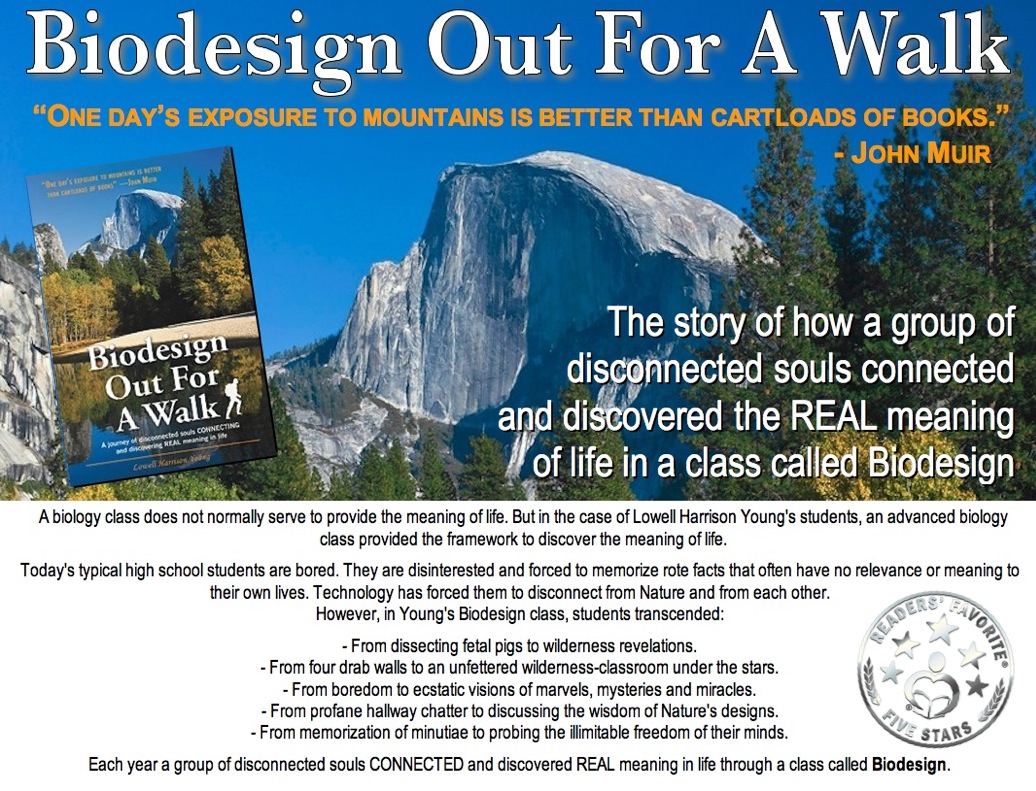Enjoy the Biodesign Out For A Walk education/inspiration/spirituality non-fiction book trailer! For best results, please change your viewing settings to 720HD.
READERS’ FAVORITE: Rated 5.0 Stars
Reviewed By Maria Beltran
Biodesign Out for a Walk is about a unique biology class that germinates from an innocent question posed to the author, Lowell Harrison Young, by a bored student. In his Human Psychology class, a student, Lettie, asked the author if dissecting a fetal pig is really that important. This seemingly innocent question, through a happy series of events, gave way to the Biodesign class, where the students are made to go out in the wilderness, so to speak, and discover nature by experiencing nature itself. Inspired primarily by the ideas of John Muir, Loren Eiseley, John Powell, Ed Rickets, and John Steinbeck, the teacher and his students sought answers to the universal question: What is important in life?
After twenty-four years and with over 700 students participating in the Biodesign class, author Lowell Harrison Young has collected a rich trove of stories that not only inspires and enlightens but also entertains the reader. His book, Biodesign Out for a Walk, chronicles the experiences that he and his students went through as they explored the beaches of Mendocino, the Yosemite peaks, and the crevices of the Grand Canyon. It is interesting to note that what seems to be an experiment in teaching results in a system of learning that heightens the spiritual, moral, and intellectual awareness of the students. Easy to read and full of youthful insights into the essence of life, this is a book that should be read by parents and educators alike.
